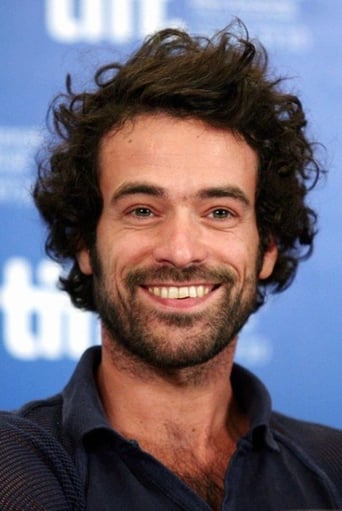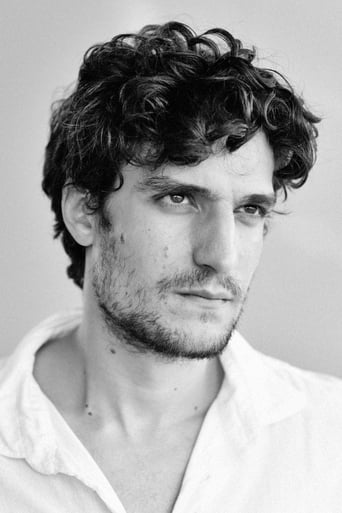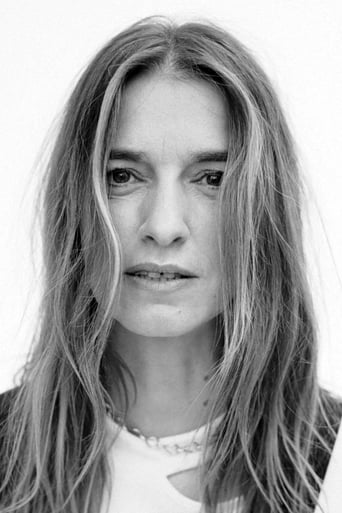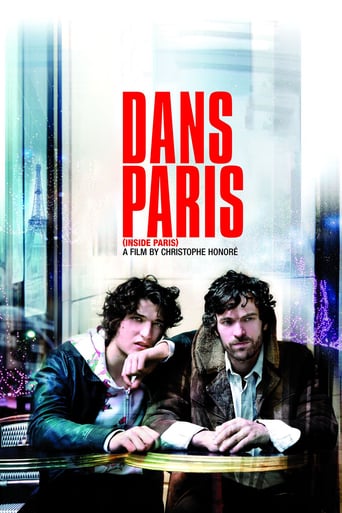
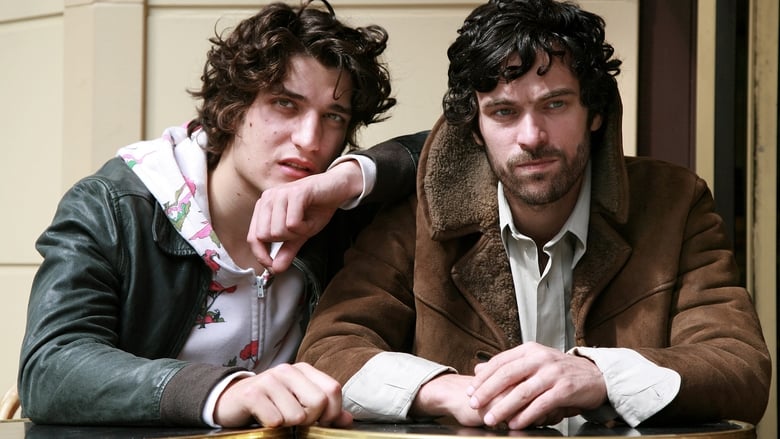
In Paris (2006)
Paul, depressed from his recent break-up with Anna, returns home to Paris and moves back in with his divorced father and amorous younger brother, Jonathan. While his carefree sibling and doting father try in vain to cheer him up, a visit from his mother seems to be the only thing that brings him joy. When Paul is then left in the house to brood and talk to one of his brother's girlfriends, he begins to realize that while things haven't gone according to plan, one can always find something to live for.
Watch Trailer
Cast


Reviews
'Dans Paris' tells the story of a highly dysfunctional family one Christmas. There's the eccentric, meddlesome father; his superficially affectionate ex-wife; his depressed elder son, recovering from a high-octane affair with an emotionally demanding woman; his philandering younger son; a dumped girlfriend of the latter; and, hovering above them all, the memory of a daughter who committed suicide. It sounds depressing, but the film has a jazzy feel (and soundtrack), and improvises nicely judged, semi-fantastical sequences to leaven the realism. This isn't a huge movie - in terms of plot, not a lot happens - but it's originally drawn, and a fun and occasionally touching portrait of the messiness of life.
Paul(Romain Duris) can't live with or without Anna(Joana Preiss). Jonathan(Louis Garrel) broke the fourth wall in the opening moments of "Dans Paris" and announces that the movie won't have a narrator. He's not the main character; Paul is, according to Jonathan. The narrator is lying. Jonathan's the main character because "Dans Paris" is about narration. Like most films, "Dans Paris" will proceed with omniscient narration. Unlike most films, however, the audience isn't made aware of this given. There's a tacit agreement between the filmmaker and moviegoer that the film begins where the backstory leaves off. But Jonathan speaks directly to the camera, forcing the viewer out of his passive stance. Jonathan isn't Paul's big brother, but he is "big brother" in the Orwellian sense of the word. Jonathan is literally, the omniscient narrator."Dans Paris" breaks down its story into two sections: Paul with Anna, and Paul without Anna. This compartmentalization extends to the mode of narration. When Paul and Anna are together, "Dans Paris" records their relationship in a non-linear fashion. When they're apart, the story becomes more sequential in its telling. The first part is told in non-sequential order because Jonathan picks and chooses what interests him the most; not surprisingly, most of the scenes feature Anna in a state of undress. Personal hygiene, or the lack of personal hygiene, is a subject that Anna broaches when Paul leaves their bed to take a shower. Anna believes Paul is leading by example. Paul's decision to lather up, Anna thinks, is tied in to the hope that she'll follow suit. Accused of being rank in a passive-aggressive fashion, Anna flips her lid. Since it's unlikely that Paul would share this moment with Jonathan, the viewer is led to believe that the younger brother is a filmic interloper, the camera's eye in the flesh. When Jonathan bumps into an old flame, this ex-lover cites personal hygiene for their break-up. In other words, "Dans Paris" has echoes. If Jonathan "controls the vertical and the horizontal", he controls the story of his life that's being narrated. Three women in one day, hmmm. We see it. But we see what he wants us to see.A cursory glance at "Dans Paris" suggests that this neo-French New Waver is about a sad man who lost his girlfriend, but if you're attuned to the self-reflexive opening, you'll understand that it's really about narration.
What an earth has happened to Parisian cinema? Much like its architecture Paris's cinema seems to suffer under the shadow of its predecessors. The beautiful wholeness of Paris as a city means it is near impossible for Parisian architects to create anything modern and fresh for fear that it will jar too badly with its classical surroundings. Similarly Paris cinema suffers under the shadow of the nouvelle vague, its public is too obsessed with its own ageing image that anything fresh and original is drowned out by tribute after tribute to a dead past (La Haine being a rare exception).If Honore had wanted to make a film about the modern Paris the action would have taken place completely within the confines of Paul's bedroom. Instead Jonathan bizarre jaunt across Paris which is neither interesting, funny or iconic in anyway takes up half the film.Even the sections which do focus on Paul offer painfully inept psychological profiles compared to similar studies in German, and particularly Eastern European cinema.Frankly I wouldn't waste your time with this one and instead seek out some of the more exciting French cinema coming out of Marseille at the moment.
I liked the avant-garde touches such as the address-to-camera in the opening, the speeded-up lovers cavorting by the Seine and touches like Jon reading a copy of 'Franny et Zooey' (another story with a dead sister)or that he stops in front of two film posters in the street, neither of which I've seen but both of which I'm sure are relevant. The conversation Paul has with Jon's forlorn girl-friend about his theory of sadness is also very moving, as is Paul's reading of the children's storybook to his younger brother, if both are somewhat obscure.The father preparing dinner whilst his estranged wife outlines the difficulties of their previous relationship seems rooted in reality. Paul's self-destructive behaviour and the see-saw moods of his relationship are bizarre believable. The relationships are discussed in a way that is both reflective and expressive, such a change from the cutesy-clichés of American romances.


